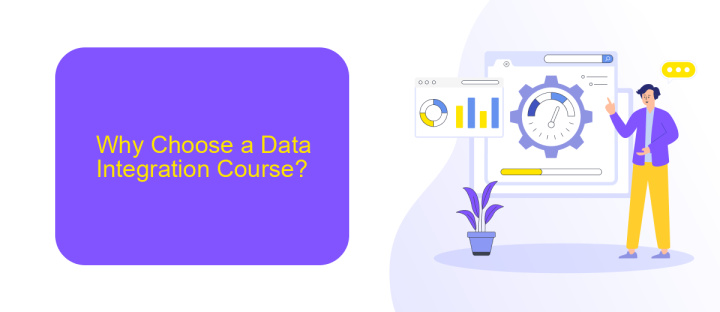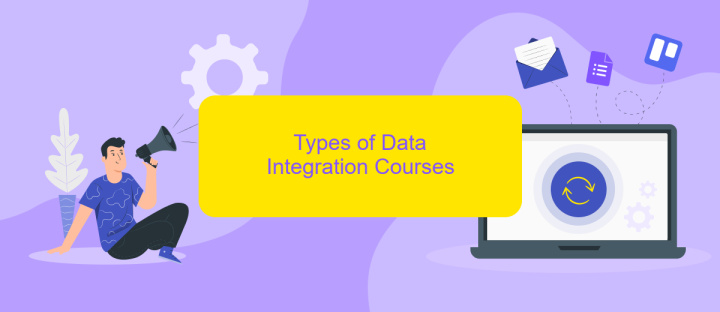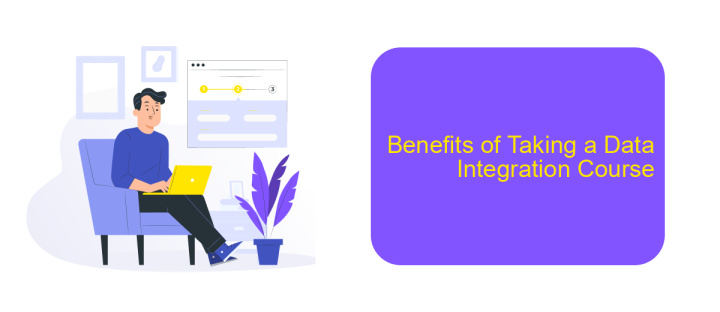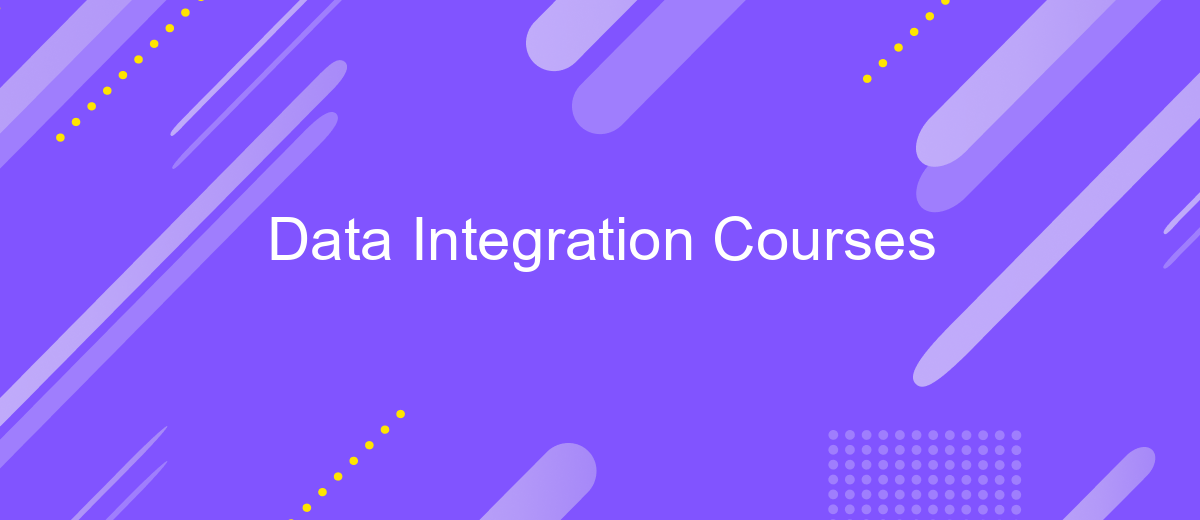Data Integration Courses
In today's data-driven world, mastering data integration is essential for businesses looking to harness the full potential of their information. Data integration courses provide valuable skills and knowledge to seamlessly combine data from various sources, ensuring accuracy and accessibility. Whether you're a novice or a seasoned professional, these courses offer the tools and techniques needed to excel in this critical field.
Introduction
Data integration is an essential aspect of modern business operations, enabling seamless connectivity between various data sources and applications. As organizations increasingly rely on data-driven decision-making, the need for efficient data integration solutions has never been more critical. This is where data integration courses come into play, equipping professionals with the necessary skills and knowledge to manage and streamline data flows effectively.
- Understanding the fundamentals of data integration
- Exploring different data integration tools and platforms
- Learning best practices for data mapping and transformation
- Hands-on experience with popular integration services like ApiX-Drive
- Implementing data integration solutions in real-world scenarios
By enrolling in a data integration course, individuals can gain a comprehensive understanding of how to connect disparate data systems, ensuring data consistency and accuracy. Whether you are a data analyst, IT professional, or business manager, mastering data integration techniques will empower you to leverage data effectively, driving better business outcomes and fostering innovation.
Why Choose a Data Integration Course?

Choosing a Data Integration course can significantly enhance your skills in managing and consolidating data from multiple sources into a unified view. These courses provide you with the essential knowledge to handle complex data landscapes, ensuring seamless data flow and accessibility across various platforms. By mastering data integration, you can improve data quality, streamline business processes, and make informed decisions based on comprehensive data analysis.
Moreover, data integration courses often cover practical tools and services like ApiX-Drive, which simplify the integration process. ApiX-Drive allows you to automate data transfers between numerous applications without needing extensive coding skills. This hands-on experience with such tools prepares you for real-world scenarios, making you a valuable asset to any organization. Investing in a Data Integration course not only boosts your technical capabilities but also opens up new career opportunities in the ever-evolving field of data management.
Types of Data Integration Courses

Data integration courses come in various forms, catering to different learning needs and expertise levels. These courses help individuals and organizations streamline their data processes and make informed decisions based on unified data sets.
- Fundamental Courses: These are introductory courses designed for beginners. They cover the basics of data integration, including data sources, ETL (Extract, Transform, Load) processes, and basic tools.
- Advanced Courses: For those with a basic understanding, advanced courses delve deeper into complex integration techniques, data warehousing, and real-time data processing.
- Platform-Specific Courses: These courses focus on specific data integration platforms or tools, such as ApiX-Drive, teaching users how to set up and manage integrations efficiently using the platform’s unique features.
- Certification Programs: Comprehensive programs that not only teach data integration but also provide certification upon completion, validating the learner's expertise in the field.
Choosing the right type of data integration course depends on your current knowledge level and specific needs. Whether you're a beginner looking to get started or a professional aiming to specialize in a particular tool like ApiX-Drive, there's a course tailored for you.
Benefits of Taking a Data Integration Course

Enrolling in a data integration course offers numerous advantages for both individuals and organizations. These courses provide a comprehensive understanding of how to efficiently combine data from various sources, which is crucial in today’s data-driven world.
One of the primary benefits is the enhancement of technical skills. Students learn to use various tools and platforms designed for data integration, such as ApiX-Drive, which simplifies the process of connecting different applications and automating workflows. This knowledge is invaluable for IT professionals, data analysts, and anyone involved in data management.
- Improved data accuracy and consistency
- Enhanced decision-making capabilities
- Time and cost savings through automation
- Better scalability and flexibility in data handling
Furthermore, data integration courses often include hands-on projects and real-world scenarios, allowing participants to apply what they have learned in practical settings. This experiential learning approach not only solidifies their understanding but also makes them more adept at solving complex data challenges in their respective fields.
How to Choose the Right Data Integration Course
When selecting the right data integration course, begin by evaluating your current skill level and specific needs. Are you a beginner looking to understand the basics, or an experienced professional aiming to master advanced techniques? Look for courses that offer a comprehensive curriculum, covering essential topics like data mapping, transformation, and real-time integration. Additionally, consider the format of the course—whether it's self-paced, instructor-led, or a hybrid model—to ensure it aligns with your learning preferences and schedule.
Another crucial factor is the practical application of the skills taught. Opt for courses that provide hands-on experience with popular data integration tools and platforms, such as ApiX-Drive. This will not only help you understand theoretical concepts but also enable you to apply them in real-world scenarios. Check for reviews and testimonials from past participants to gauge the course's effectiveness and relevance. Lastly, consider the certification and support provided post-completion, as these can be valuable assets in your professional growth.
FAQ
What is a Data Integration Course?
Who should take a Data Integration Course?
What will I learn in a Data Integration Course?
How long does it take to complete a Data Integration Course?
Are there tools available to help automate data integration processes?
Apix-Drive is a universal tool that will quickly streamline any workflow, freeing you from routine and possible financial losses. Try ApiX-Drive in action and see how useful it is for you personally. In the meantime, when you are setting up connections between systems, think about where you are investing your free time, because now you will have much more of it.

